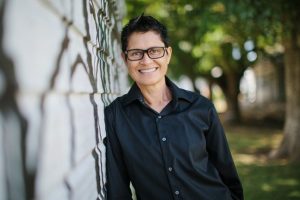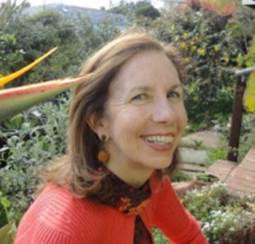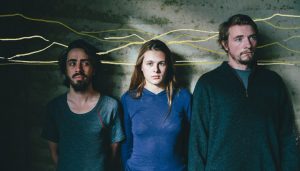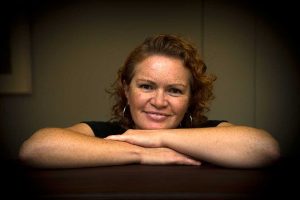 Current Massey PhD student Gina Cole has won The Hubert Church Best First Book Award for Fiction for Black Ice Matter, a collection of short stories that explores connections between extremes of heat and cold. Listen here to Jesse Mulligan’s interview with Gina.
Current Massey PhD student Gina Cole has won The Hubert Church Best First Book Award for Fiction for Black Ice Matter, a collection of short stories that explores connections between extremes of heat and cold. Listen here to Jesse Mulligan’s interview with Gina.
Category Archives: Creative Writing
MCW graduate makes the airwaves
Annabel Wilson, a Massey Master of Creative Writing graduate, had her theatrical poem “No Science to Goodbye” recently broadcast on Radio New Zealand. Annabel’s play is based around her 2014 MCW thesis.
Auckland Writers Festival – 16-21 May 2017
Four writers associated with the School of English and Media Studies are presenting at this week’s Auckland writers’ festival at the Aotea Centre. Do go along to support them if you can!
Tina Makereti: “Poutokomanawa — the Heartpost,” free public lecture on Māori and Pasifika writing – Wed. 17 May 5 pm
Gina Cole, PhD student in Creative Writing: Gala opening, 18 May 7 pm and “Pacific Tales” 19 May 2:30 pm
Hannah August: Chair for a discussion with Lloyd Geering and A.N. Wilson, 20 May at noon
Sue Wootton, graduate: “Matters Medical” 20 May at 4:30 pm
More information and venues at: http://writersfestival.co.nz
Auckland Writers Festival – 17 May 2017
Tina Makereti will be speaking at the Auckland Writers Festival next week, Wednesday 17 May. It’s a free event so please do pop along if you can.
Jack Ross on Radio New Zealand
Jack Ross spoke to Radio New Zealand’s Lynn Freeman about Poetry New Zealand: Yearbook 2017, featuring new and well established writers. Jack has selected 125 new poems from hundreds submitted internationally, and supplemented them with essays and reviews by other writers keen to get people talking more about poetry.
Abundance of young voices in latest Poetry NZ
Performing, Writing event – 10-19 March 2017
Dr Tina Makereti will be speaking and holding a free writing workshop at the Performing, Writing symposium in Wellington. The workshop is being run on Sunday 12 March, with Tina’s keynote speech on Wednesday 15 March. Further information on the symposium can be found on the event website.
Māori literature deserves academic recognition
Moa Magic
Madam Black, a short film written by Matthew Harris, one of our senior tutors in Auckland, has recently picked up Best Short Film at The Rialto Channel NZ Film Awards (the ‘Moas’). The film has now won 38 international awards, including the Prix du Public at the Clermont-Ferrand in France – the biggest audience prize for short film in the world. After this weekend’s win the film was described by Rialto as a “globally acclaimed short” on an “historic awards run”. Matthew says “the volume of these festival awards are definitely encouraging, so I’ll be devoting a lot more time to screenwriting, but I maintain other areas of interest too – short fiction, academic writing, teaching – I’m looking forward to tutoring Creative Writing this semester!”
Public Plenary Lecture – Celeste Langan
Celeste Langan, Associate Professor in the UC Berkeley Department of English, will be speaking in Wellington at the upcoming RSAA conference “Transporting Romanticism” on Friday 17 February. Details are below:
Under Arrest: Transport and Security (Excitation and Citation)
Friday 17 February 2017
4.45pmpm
The Pit 12B09 – Te Ara Hihiko, Massey Wellington
Recent books on the modern revolution in transport enabled by the shipping container remind us that the term “logistics,” now used primarily to signify systems “allowing circulations to take place,” was first used by one of Napoleon’s former generals: a chapter in Jomini’s The Art of War was titled “Logistics; or the Practical Art of Moving Armies.” How might we think of what is after all the continuing project of “transporting Romanticism” in relation to global logistics and the shipping container? Reminded that books of poems are carried on the same ships that transport settlers and soldiers, what changes about our understanding of their power to transport? Recognizing the press as an “information delivery system,” how can we differentiate between the “hackney’d” phrase Byron identifies with cant and those “truths” that “must be recited,” truths “you will not read in the gazette?” Focusing on the quotation and the capsule as figures of containerized movement in Byron’s Don Juan and Kleist’s Michael Kohlhaas, I’ll explore their attempts to develop a counterlogistics of the word.
 Celeste Langan, Associate Professor in the UC Berkeley Department of English, is the author of Romantic Vagrancy: Wordsworth and the Simulation of Freedom, a study of why and how Rousseau and Wordsworth represent political freedom as freedom of movement. More recently, she has helped to develop the subfield of Romantic Media Studies, with essays like “Understanding Media in 1805,” “The Medium of Romantic Poetry” (co-authored with Maureen McLane), and “Pathologies of Communication from Coleridge to Schreber.” Her current book manuscript, Post-Napoleonism: Literature and the Afterlife of Sovereignty, traces the migration of the political concept of sovereignty into the domain of the literature. Drawing on the Freudian concept of “afterwardsness” or the après coup, the book illuminates ways in which the newspaper report of an event is foundational to a new idea of literature as mediated utterance.
Celeste Langan, Associate Professor in the UC Berkeley Department of English, is the author of Romantic Vagrancy: Wordsworth and the Simulation of Freedom, a study of why and how Rousseau and Wordsworth represent political freedom as freedom of movement. More recently, she has helped to develop the subfield of Romantic Media Studies, with essays like “Understanding Media in 1805,” “The Medium of Romantic Poetry” (co-authored with Maureen McLane), and “Pathologies of Communication from Coleridge to Schreber.” Her current book manuscript, Post-Napoleonism: Literature and the Afterlife of Sovereignty, traces the migration of the political concept of sovereignty into the domain of the literature. Drawing on the Freudian concept of “afterwardsness” or the après coup, the book illuminates ways in which the newspaper report of an event is foundational to a new idea of literature as mediated utterance.
This plenary is made possible by the W.H. Oliver Humanities Research Academy, Massey University. It forms part of Transporting Romanticism, Romantic Studies Association of Australasia Biennial Conference, 16-18 February 2017, co-hosted by Massey University and Victoria University of Wellington. https://rsaa2017.wordpress.com/

